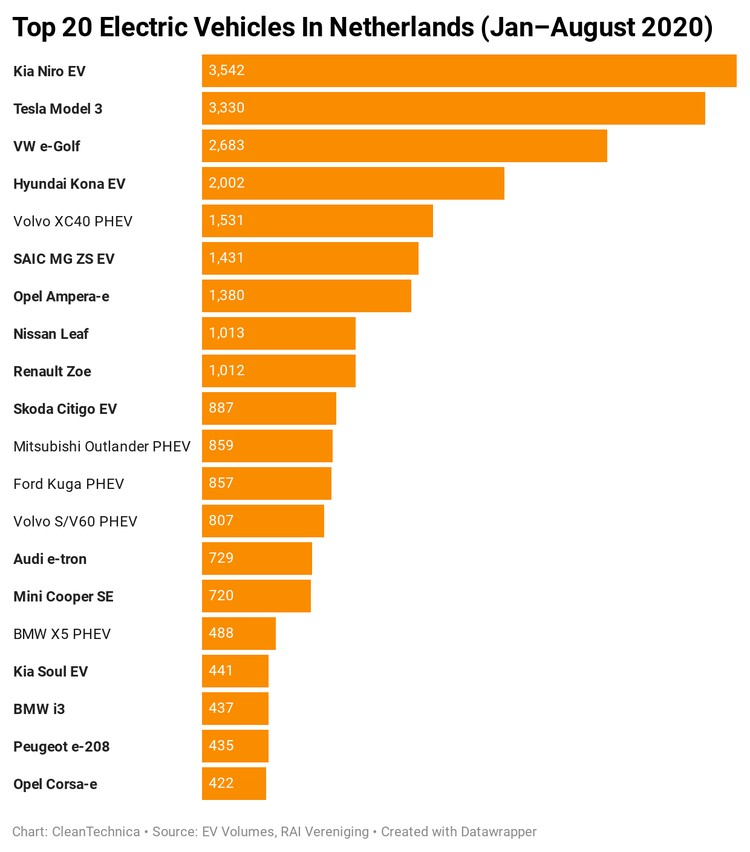- Μηνύματα
- 59.724
- Reaction score
- 146.103
Between 2010 and 2018, the global proliferation of SUVs caused an increase in gasoline consumption of 3.3 million barrels per day. According to the International Energy Agency (IEA), this translated to an increase of 0.55 gigatons of CO2 over one decade, making SUVs “the second-largest contributor to the increase in global CO2 emissions since 2010 after the power sector.” That’s not vehicles in general—just SUVs.
Electrifying SUVs is a step in the right direction, but it doesn’t change the fact that larger and heavier vehicles will always consume more energy. For example, a comparison on fueleconomy.gov shows us that the 2019 Audi e-tron uses 46 kWh of electricity to go 100 miles, and the 2019 Jaguar I-Pace sucks up 44 kWh. Compare these efficiency ratings to those of the smaller Nissan LEAF (30 kWh/100 miles) and Chevy Bolt (28 kWh/100 miles).
So, we find that the difference in fuel efficiency between an electric SUV and a small electric hatchback is even greater than the difference of 25% that we noted above for gas vehicles (the I-Pace consumes 31% more electrons per mile than the LEAF). Of course, as many studies have shown, any EV has a smaller carbon footprint than the average gas or diesel vehicle, and EVs emit zero nitric oxides and other local air pollutants. But even renewable energy has environmental impacts, and, just as it’s better to reduce and reuse than to recycle, it’s always better to use less energy in the first place.
I know, I know. You love the space and ride height of an SUV. Is there any way to have the best of both worlds, a stylish and roomy vehicle that delivers maximum efficiency? Actually, there is: try a Tesla. The 2019 Tesla Model X Long Range has an efficiency of 35 kWh/100 miles, far better than the Audi or the Jaguar. The 2019 Tesla Model Y Long Range AWD achieves 28 kWh/100 miles, equal to the efficiency of the smaller and squarer Chevy Bolt!

 insideevs.com
insideevs.com
ΥΓ..

Electrifying SUVs is a step in the right direction, but it doesn’t change the fact that larger and heavier vehicles will always consume more energy. For example, a comparison on fueleconomy.gov shows us that the 2019 Audi e-tron uses 46 kWh of electricity to go 100 miles, and the 2019 Jaguar I-Pace sucks up 44 kWh. Compare these efficiency ratings to those of the smaller Nissan LEAF (30 kWh/100 miles) and Chevy Bolt (28 kWh/100 miles).
So, we find that the difference in fuel efficiency between an electric SUV and a small electric hatchback is even greater than the difference of 25% that we noted above for gas vehicles (the I-Pace consumes 31% more electrons per mile than the LEAF). Of course, as many studies have shown, any EV has a smaller carbon footprint than the average gas or diesel vehicle, and EVs emit zero nitric oxides and other local air pollutants. But even renewable energy has environmental impacts, and, just as it’s better to reduce and reuse than to recycle, it’s always better to use less energy in the first place.
I know, I know. You love the space and ride height of an SUV. Is there any way to have the best of both worlds, a stylish and roomy vehicle that delivers maximum efficiency? Actually, there is: try a Tesla. The 2019 Tesla Model X Long Range has an efficiency of 35 kWh/100 miles, far better than the Audi or the Jaguar. The 2019 Tesla Model Y Long Range AWD achieves 28 kWh/100 miles, equal to the efficiency of the smaller and squarer Chevy Bolt!

Crossovers Like Tesla Model Y: Critical Role In Zero Emissions Future
Vehicles like the Tesla Model Y should work to steer more people to electric cars. This is because crossovers and SUVs are so popular. This must happen.
ΥΓ..

Last edited:




